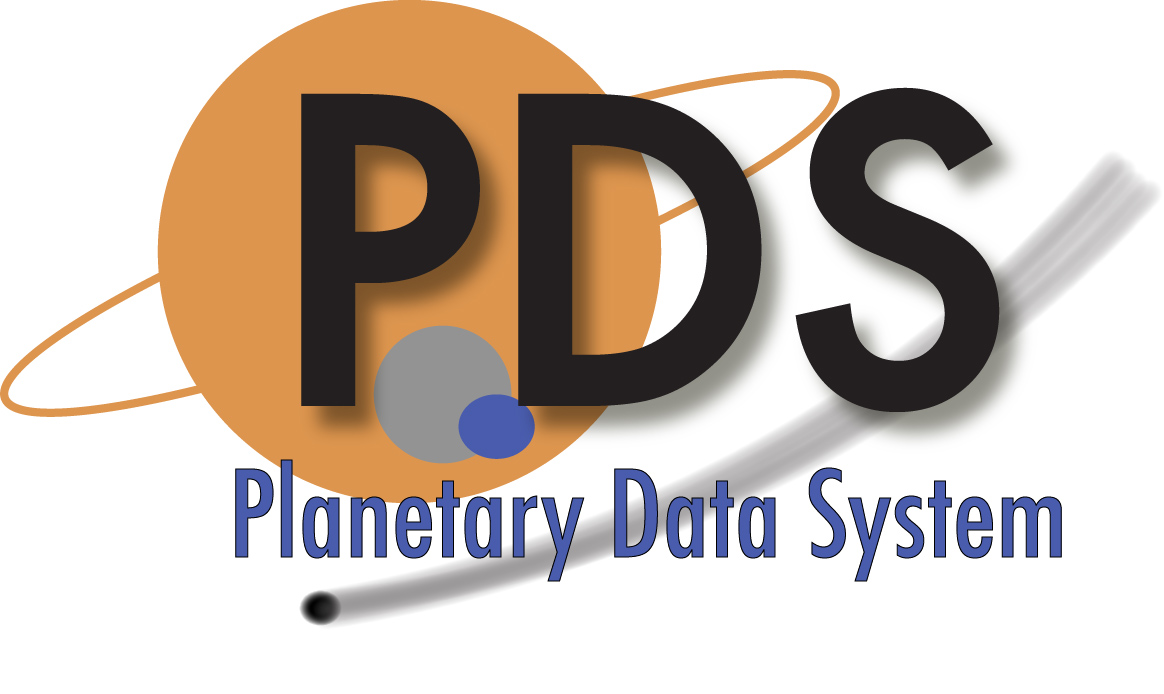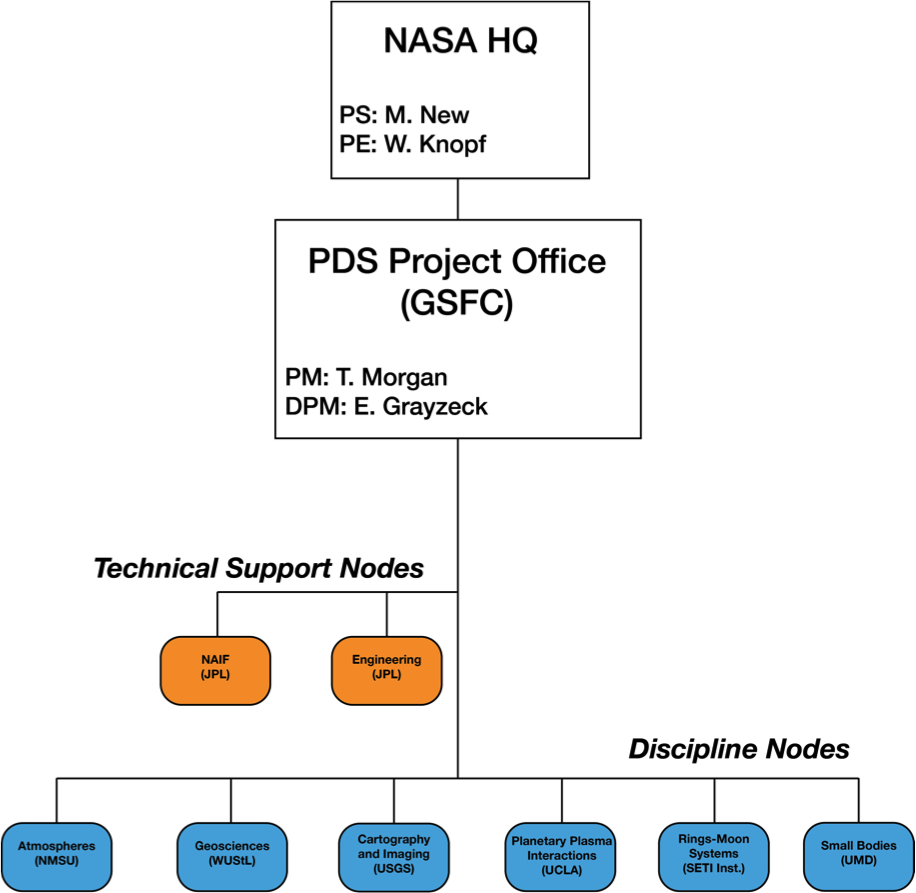NASA Planetary Data System (PDS)
https://pds.nasa.gov
The Planetary Data System (PDS) archives digital data products from NASA's planetary missions, sponsored by NASA's Science Mission Directorate. It actively manages the archive to maximize its usefulness, and PDS has become a basic resource for scientists around the world.
All PDS-curated products are peer-reviewed for standards compliance, scientific correctness, and usability by other planetary scientists. All PDS-curated products are well documented and available online to scientists and to the public without charge. Online search capabilities are provided.
PDS uses standards for describing and storing data that are designed to enable future scientists who are unfamiliar with the original experiments to analyze the data, and to do this using a variety of computer platforms, with no additional support. These standards address the data structure, descriptions of contents, storage media and vocabulary.
Though PDS does not fund the production of archive data from active missions, it works closely with project teams to help them design well-engineered products that can be released quickly. A "discipline node" of the PDS is assigned to each mission as the point of contact for that mission’s archiving activities (the "lead node"). Staff at the lead node work with the mission team to define archive formats, interface documents and the mission’s science data management plan.
While PDS-curated products are freely available online, the PDS provides teams of scientists to help users select and understand the data. It also offers special processing for products tailored to the needs of individual users.
The PDS is organized as a federated data system; data are archived by discipline-specific organizations, the Discipline Nodes, which are accessible directly through a single portal (http://pds.nasa.gov).
All PDS-curated products are peer-reviewed for standards compliance, scientific correctness, and usability by other planetary scientists. All PDS-curated products are well documented and available online to scientists and to the public without charge. Online search capabilities are provided.
PDS uses standards for describing and storing data that are designed to enable future scientists who are unfamiliar with the original experiments to analyze the data, and to do this using a variety of computer platforms, with no additional support. These standards address the data structure, descriptions of contents, storage media and vocabulary.
Though PDS does not fund the production of archive data from active missions, it works closely with project teams to help them design well-engineered products that can be released quickly. A "discipline node" of the PDS is assigned to each mission as the point of contact for that mission’s archiving activities (the "lead node"). Staff at the lead node work with the mission team to define archive formats, interface documents and the mission’s science data management plan.
While PDS-curated products are freely available online, the PDS provides teams of scientists to help users select and understand the data. It also offers special processing for products tailored to the needs of individual users.
The PDS is organized as a federated data system; data are archived by discipline-specific organizations, the Discipline Nodes, which are accessible directly through a single portal (http://pds.nasa.gov).


